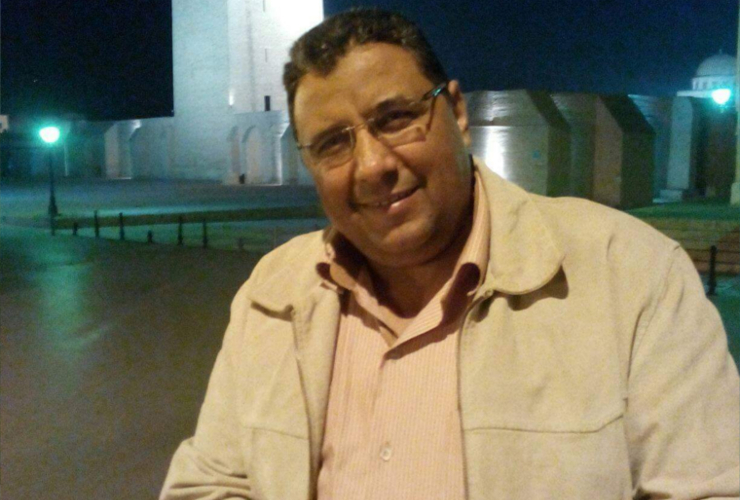The International Press Institute (IPI), a global network of editors, media executives and leading journalists for press freedom, today welcomed the release of Al Jazeera journalist and IPI member Mahmoud Hussein from an Egyptian prison after more than four years.
The Doha-based journalist had been held in Cairo’s notorious Tora prison after being arbitrarily detained in December 2016. The Egyptian government repeatedly and illegally extended his detention, accusing him of broadcasting “fake news” and “defaming” state institutions. No formal charges were brought against him.
“We welcome Egypt’s release of Mahmoud Hussein, and are elated that he has been reunited with his family”, IPI Deputy Director Scott Griffen said. “But make no mistake: Today’s decision does not erase the harm done to Mahmoud, who lost four years of his life in arbitrary, unlawful detention and who was repeatedly denied his basic rights.
“Mahmoud’s release must be a step toward ending the systematic repression of independent journalism in Egypt. The country’s authorities must free the dozens more journalists it is holding behind bars and allow the media to operate free from harassment and intimidation.”
IPI had publicly campaigned for Hussein’s release. In December, IPI published a full-page ad in The Washington Post calling on Egypt to free Hussein and all other jailed journalists in the country. The ad was followed by an urgent appeal to Egyptian President Abdel Fattah Al-Sisi
The decision to release Hussein was made on February 1, but he was kept at a local police station for days before he was able to go home, Gamal Eid, head of the Arab Network for Human Rights Information (ANHRI) told the International Press Institute (IPI). Al Jazeera reported that Egyptian authorities had not yet commented on Hussein’s release.
Hussein is an Egyptian national who had been working as a news editor for Al Jazeera’s Arabic service since 2011. He moved to Doha in 2013. He was arrested on December 20, 2016 upon his arrival in Cairo to visit his family and interrogated for nearly 15 hours without the presence of a lawyer. He was released shortly thereafter only to be rearrested days later. Since then, his detention has been extended more than a dozen times.
During his time in jail, Hussein was held for long periods in solitary confinement and systematically denied his legal rights. Authorities did not provide proper medical treatment when he broke his arm in 2017. The U.N. Working Group on Arbitrary Detention concluded in 2018 that Hussein’s jailing was arbitrary and that the conditions of his imprisonment amounted to “cruel, inhuman and degrading treatment”.
In May 2019, a court decision to release Hussein under “precautionary measures” was bypassed at the last minute. After being transferred to a holding cell, Hussein was suddenly sent back to Cairo’s Tora prison, and the authorities announced that a new investigation had been opened against him.
According to data collected by IPI as part of its #PressEgypt campaign, more than 60 journalists are jailed in Egypt. Prisons are overcrowded and prisoners are kept under poor conditions. The #PressEgypt campaign aims to put pressure on the Egyptian government to secure the release of imprisoned journalists and to ensure that independent media and journalists can work without fear.
Arrests of journalists in Egypt have continued in the new year. Since January, the Egyptian authorities have detained at least three media workers. Cartoonist Ashraf Hamdi was arrested on January 25 after he had posted online a cartoon video about the 10th anniversary of the Arab Spring uprising in Egypt. Freelance photojournalist Hamdi al-Zaeem and freelances reporter Ahmed Khalifa were detained in two separate cases in January 5 and 6.
